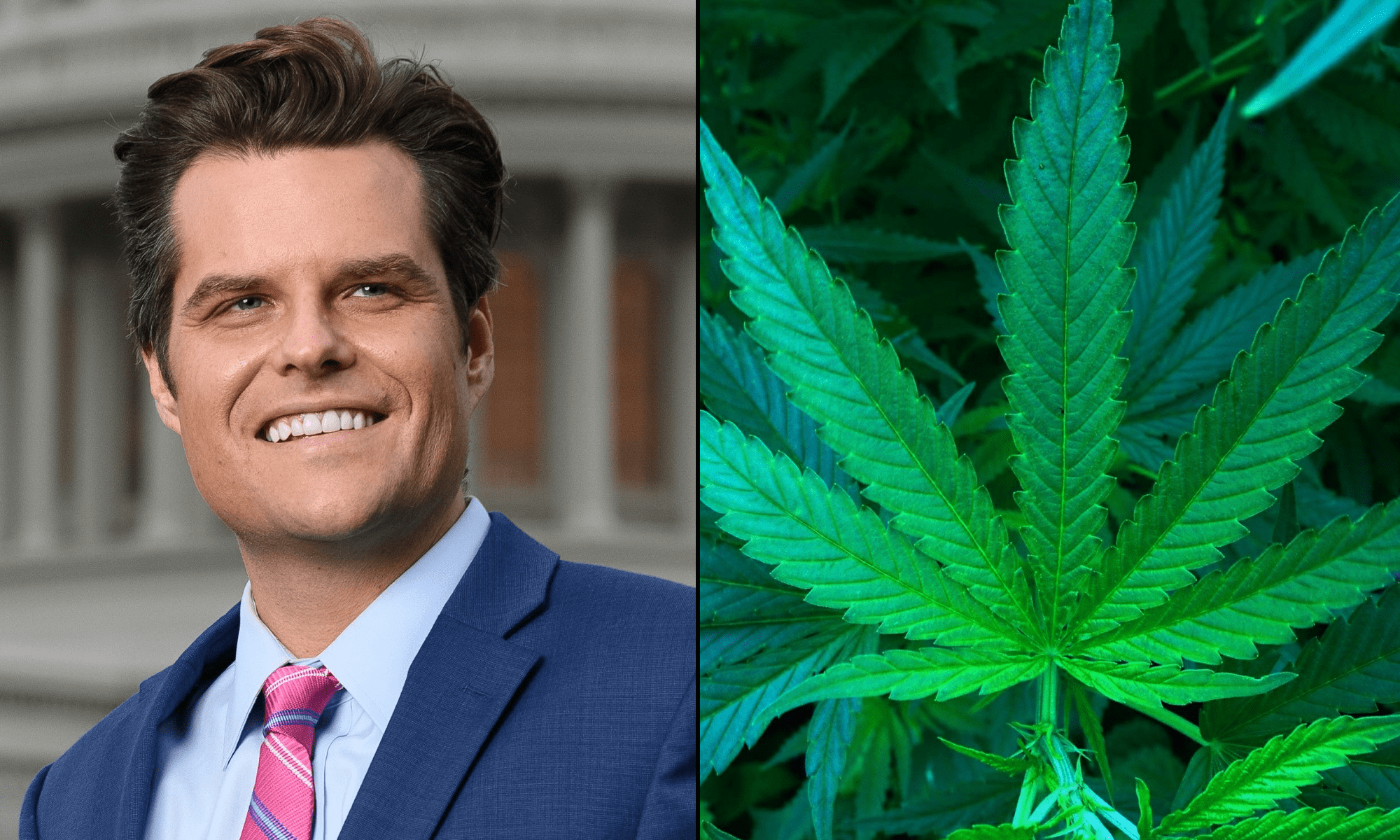Politics
Embracing Marijuana Legalization Could Help GOP Win Over More Young Voters, Trump’s First Attorney General Pick Suggests

President Donald Trump’s first pick for attorney general in the current administration is reiterating his support for rescheduling cannabis—suggesting in an interview with a Florida Republican lawmaker that the GOP could win more of the youth vote by embracing marijuana reform.
In an interview on the One America News show he hosts, former U.S. Rep. Matt Gaetz (R-FL) asked Florida Rep. Alex Andrade (R), whether the state legislator views “cannabis reform as a way for the Republican party to secure more votes from young voters.”
“Yeah, I do. Mainly, I think it’s just keeping on trend with just being the most authentic with our policy message,” Andrade replied. “You know, the vast majority of Americans don’t have Reefer Madness worries or concerns. They view it as something that has some kind of medical benefit, and I think that it’s the most authentic position to say we should treat this like the product that it is, instead of fear mongering about it continually.”
Gaetz has long advocated for marijuana reform, both in the state legislature and in Congress, where he was a rare example of a Republican member who supported a Democratic-led federal legalization bill.
Trump initially selected him to run the Justice Department, but the former congressman ultimately withdrew from consideration.
On marijuana rescheduling, the president did endorse the policy change on the campaign trail. But he’s been publicly silent on the issue since taking office. Gaetz said last month that Trump’s endorsement of a Schedule III reclassification was essentially an attempt to shore up support among young voters rather than a sincere reflection of his personal views about cannabis.
While Trump’s position on the issue has evolved over the years, including several past comments supportive of medical cannabis, Gaetz has said the president is still “totally intolerant” to any reform that “he believes will increase drug use.”
A survey conducted by a GOP pollster affiliated with Trump that was released in April found that a majority of Republicans back a variety of cannabis reforms, including rescheduling. And, notably, they’re even more supportive of allowing states to legalize marijuana without federal interference compared to the average voter.
Meanwhile, in April, Gaetz said there’s a “winning coalition” of libertarian-leaning Republicans and Democrats to federally legalize marijuana—but only if Democrats drop their push for social equity and “reparations.”
The prior month, he separately said that “meaningful” marijuana reform is “on the horizon” under the Trump administration, praising the president’s “leadership” in supporting rescheduling.
—
Marijuana Moment is tracking hundreds of cannabis, psychedelics and drug policy bills in state legislatures and Congress this year. Patreon supporters pledging at least $25/month get access to our interactive maps, charts and hearing calendar so they don’t miss any developments.
![]()
Learn more about our marijuana bill tracker and become a supporter on Patreon to get access.
—
Advocates and stakeholders were generally encouraged when Trump picked Gaetz to lead the Justice Department following his election, even if the pick was controversial for unrelated reasons. Having an attorney general who proactively championed reform would have represented a major shift, and many felt it would have boded well for seeing through the rescheduling process.
Since then, however, Trump picked former Florida Attorney General Pam Bondi (R) to run DOJ, and the Senate confirmed that choice. During her confirmation hearings, Bondi declined to say how she planned to navigate key marijuana policy issues. And as state attorney general, she opposed efforts to legalize medical cannabis.
Adding to the uncertainty around the fate of the rescheduling proposal, Trump’s nominee to lead DEA, Terrance Cole, has previously voiced concerns about the dangers of marijuana and linked its use to higher suicide risk among youth.
During an in-person hearing before the Judiciary Committee in April, Cole said examining the rescheduling proposal will be “one of my first priorities” if he was confirmed for the role, saying it’s “time to move forward” on the stalled process—but again without clarifying what end result he would like to see.
DEA recently notified an agency judge that the proceedings are still on hold—with no future actions currently scheduled. The matter sat without action before an acting administrator, Derek Maltz, who has called cannabis a “gateway drug” and linked its use to psychosis. Maltz has since left the position.
Amid the stalled marijuana rescheduling process that’s carried over from the last presidential administration, congressional researchers recently reiterated that lawmakers could enact the reform themselves with “greater speed and flexibility” if they so choose, while potentially avoiding judicial challenges.



